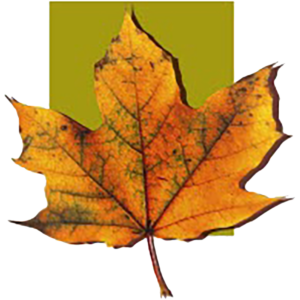Tree Planting
Move your mouse over the image for instructions on parts of the planting process.

Guy Wires
Route 2 strands of galvanized wire through rubber hose (12-18" length) & twist tight for support. Place hose above first lateral branches. Attach wire to guying stakes (2" x 2" x 36"). Cut notch in back of stake to hold wire. Mark wire for safety.
Mulch
Apply 3" mulch/bark/pinestraw around base of tree, but minimize at trunk.
Prepare Rootball
Remove burlap/wire/strapping from top of rootball only. Elsewhere, leave in place.. Remove noticeable weeds.
Position Rootball and Water
Place rootball on compacted base so as not to settle. Rootball should be 2" above existing soil line.
Water deeply at time of planting to remove air pockets and to help settle the soil around the rootball.
Hole Size and Amended Backfill Mixture
Width of hole should be a minimum of 12" wider than rootball.
Amended Backfill Mixture
- 1/3 "Nature's Helper" — 2 cf bags (1 bag per 1.5" of caliper)
- 2/3 Existing soil — broken/loose
Note: Incorporate "DIEHARD" Root Stimulator into top 1/3 of the amended backfill mixture. (8oz packet / 2" caliper).
Apply 17-17-17 fertilizer April 15 and June 15. 1 cup (8oz) per caliper inch. Spread evenly over outer 1/3 of rootball.
Guying Stakes
Guying stakes should be inserted at a 45º angle.
Insecticide Notes
Newly planted trees are susceptible to insects. Apply "Coretect" Insecticide Tablets + Fertilizer (12-9-4) at time of planting. 3 tablets per caliper inch into top 1/3 of rootball. Then apply liquid insecticide soil drench in mid-April for systemic control of most problem insects.
We recommend the following:
Note: Always follow label directions and safety instructions.
Landscape Professionals: "Safari"
Homeowners: "Bonide" 609 Tree/Shrub Drench
Watering Notes
Too much water can be as detrimental to the livability of a tree as not applying enough. Monitor your watering practices to help ensure the success of your trees and your investment. Watering in the winter months is equally critical to watering in the summer months as rootball can dry out due to temperature and wind.
Soil Berm
Mounded soil berm outside of rootball hole to retain water.
